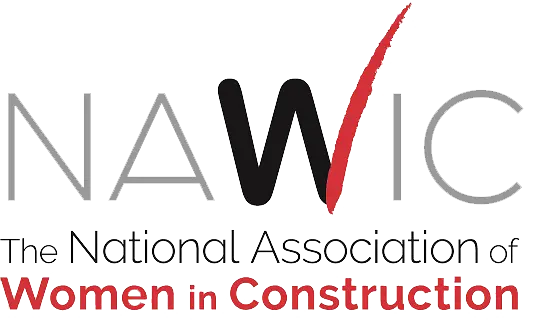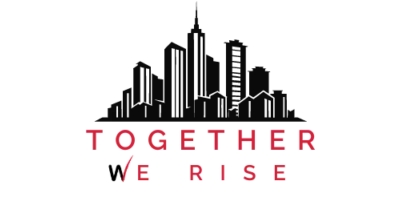
Woman Succeeding as Construction Managers: An Interview with a Seasoned Construction Manager
The construction industry, often viewed as a male-dominated field, is increasingly seeing strong female leaders who are not only contributing but also reshaping how the industry operates. One such leader is NAWIC member Tammy Crooks, J.D.; CIT, a Construction Manager at Byrne, who has built a successful career over the past 20 years. From overcoming challenges on the job site to leading diverse teams, Tammy’s journey is a testament to determination, skill, and resilience. In this interview, she shares insights into her career, the importance of safety, and advice for women interested in entering construction management.
A Journey into Construction Management
For Crooks, the path to becoming a construction manager wasn’t one she initially envisioned. “I first learned about the construction industry when I met my husband,” she recalls. “He had been involved in a lengthy court battle over a project he completed for a general contractor, and he decided he would never go into business without an in-house attorney.” Her natural inclination toward law led her to pursue a legal career, but once she passed the Bar Exam and moved to Texas, her focus shifted to construction. “I found that I loved it, and the rest is history.”
Overcoming Hurdles in Project Management
With over two decades of experience in the construction industry, she has managed countless projects from start to finish. When asked about the biggest hurdles in construction management, she says they are often the same: sticking to deadlines, staying within budget, managing subcontractors, and keeping clients satisfied. The key to overcoming these challenges, she believes, is communication and collaboration. “Communication with and buy-in from all relevant parties ensures that everyone is on the same page,” she explains. “You must also remain flexible and be willing to adapt, even if it means working out of sequence or finding new ways to solve problems.”
Essential Skills for Success
As a Construction Manager, Crooks emphasizes that her role revolves around managing people, not just projects. “The most important skills I rely on are communication and multitasking,” she says. “I always follow up meetings or conversations with an email to ensure the whole team is informed.” She also highlights the importance of understanding and working with different types of personality. “You have to know how to read people and figure out how to interact with them. Sometimes it’s about mentoring and guiding those new to the industry.”
Patience, though critical, isn’t a strength she claims to possess in abundance. “I don’t have a lot of patience, but I understand its importance in guiding teams and solving problems efficiently,” she admits.
Prioritizing Safety on the Job Site
Safety is paramount in construction, and Crooks takes it seriously. “Safety needs to be everyone’s responsibility,” she says, explaining the comprehensive safety plans that Byrne implements for each project. These include daily reports, safety training videos for every person on-site, and strict adherence to sign-in procedures to ensure the use of proper protective equipment (PPE). “My team also walks the site daily to correct any safety issues that arise,” she adds. These protocols are essential in maintaining a safe working environment for all workers.
Motivating a Diverse Team
Managing a diverse team of workers with varying skill sets can be challenging, but Crooks excels at understanding and motivating her team. “I take the time to learn about each individual,” she shares. “Understanding what’s important to them helps me tailor my approach.” For new employees, she sets clear expectations while offering guidance, understanding that their experience level may vary. “For someone fresh out of college, my expectations are different than for a seasoned project manager. Consistency and clear communication are key.”
Providing Training and Growth Opportunities
Training is an essential part of building a successful team, and Tammy takes a hands-on approach. “I’m very involved with my team and provide training as needed,” she explains. “I also look for opportunities for employees to further their education.” If she identifies a gap in a team member’s skills, she ensures they receive the resources or training to fill that gap. “Byrne supports employees who want to further their knowledge, and I believe in offering the tools needed for success.”
Leading as a Woman in a Male-Dominated Industry
Being a woman in the construction industry, which is historically male-dominated, can present unique challenges. However, Crooks has never let her gender define her leadership style. “I am confident in my abilities and knowledgeable in my field,” she states. “Some may say I’m pushy, but it’s about knowing what I want and making sure I get it.” She encourages young women entering the industry to develop a thick skin and a strong knowledge base to handle the rough and tumble nature of the field. “It’s important to have the knowledge to answer questions and to admit when you don’t know something. It’s better to say you’ll find the answer than to guess incorrectly.”
Advice for Women in Construction
When asked what advice she would offer young women considering a career in construction management, she emphasizes the importance of resilience and experience. “My first piece of advice is to develop a thick skin. Feelings have no place in this industry,” she says. “I also recommend interning during the summer to gain exposure to what the job really entails. It’s a great way to see if this career is a good fit for you.”
Looking Ahead: Future Goals
As a driven professional, Crooks has her sights set on reaching the executive level at Byrne. “My goal is to reach the executive level, and I plan to get there through hard work and determination,” she shares. Her journey is far from over, and with her passion and commitment, it’s clear she’s on the path to continued success.
Overcoming Challenges as a Woman
One of the most significant challenges for women in construction is being taken seriously as an expert. For Crooks, overcoming this challenge has been a matter of building knowledge, observing others, and learning from both mistakes and successes. “I grew a thick skin and learned to stand up for myself,” she says, “and I continue to learn something new every day.”
Tammy’s story is a powerful example of breaking barriers and succeeding in an industry that is often resistant to change. Her approach to leadership, commitment to safety, and focus on communication serve as an inspiration to others who wish to follow in her footsteps.



